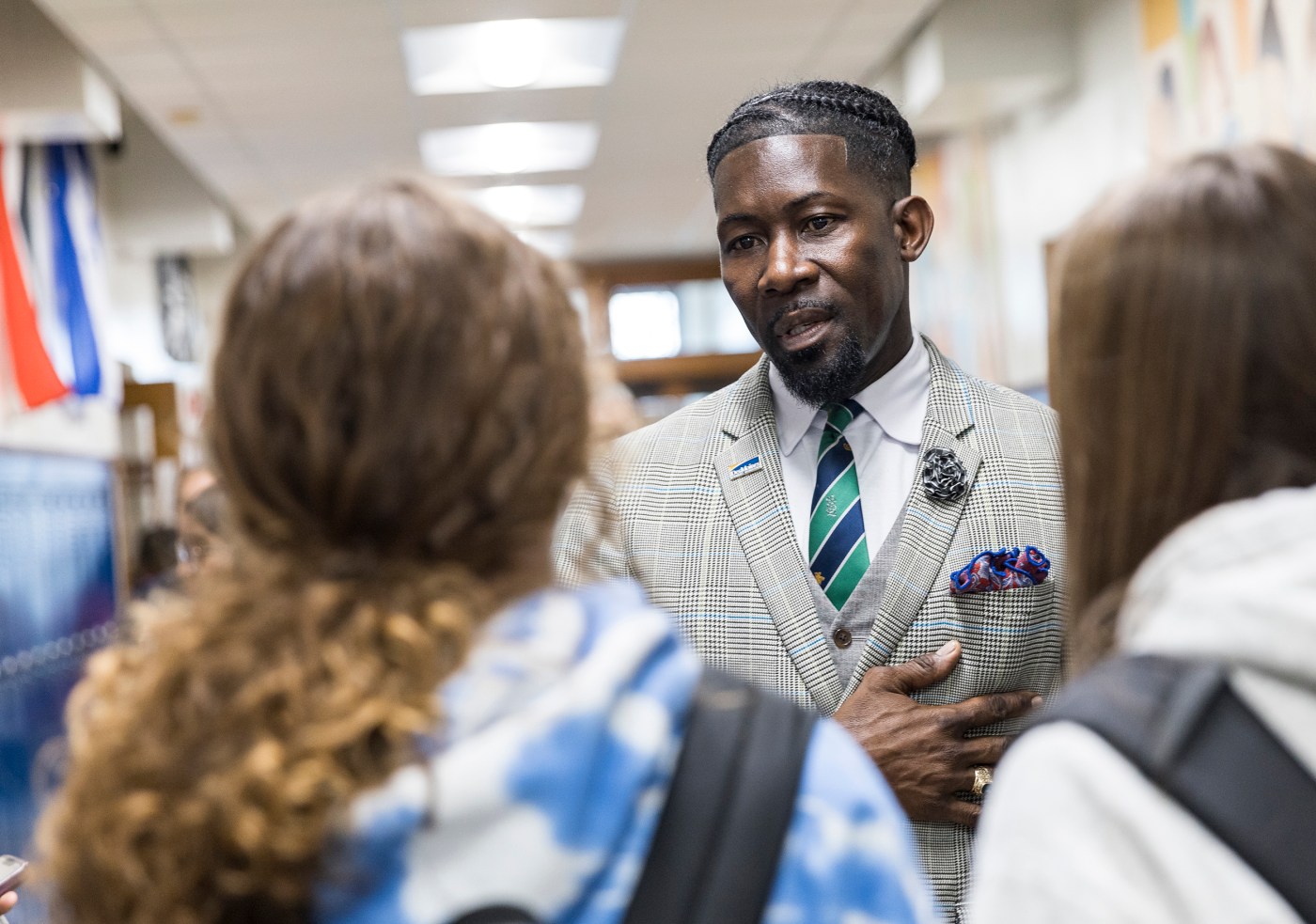The case of Ian Roberts, the former superintendent of the Des Moines School District, has drawn significant attention due to allegations regarding his immigration status and employment verification. Roberts, who had been overseeing one of Iowa’s largest school districts, is now under scrutiny after it was revealed that he may have presented false documentation during his hiring process.
To legally work in the United States, individuals are required to complete an I-9 form, which verifies their identity and employment eligibility. This process mandates that employees present valid documents, such as a passport or a permanent resident card, and employers must confirm their authenticity. In Roberts’ case, questions arise about whether proper verification procedures were followed.
Roberts, originally from Guyana, entered the United States on a student visa. According to reports, he was subsequently issued a “final order of removal” by the U.S. Department of Justice, indicating that he was in the country illegally and had a history of legal issues, including a prior weapons possession charge. As of now, he is appealing the deportation order.
Despite these troubling developments, Roberts had a notable academic background, having attended prestigious institutions like Harvard University and MIT. The situation raises serious questions about the hiring protocols within the Des Moines School District and whether sufficient measures were taken to verify Roberts’ employment eligibility.
Concerns Over Verification Processes
The Des Moines School Board has acknowledged that it outsourced its background checks, a decision that has come under fire given the current circumstances. Critics argue that this outsourcing led to a lapse in accountability. Jackie Norris, chair of the school board, stated that “in hindsight, there is nothing we would have done differently.” This comment has sparked debate about the board’s oversight and responsibility in hiring practices.
The implications of Roberts’ case extend beyond individual accountability. It highlights the broader issues surrounding immigration enforcement and employment verification. Many argue that systems like E-Verify, which allows employers to electronically confirm the employment eligibility of new hires, should be more rigorously utilized, especially in sensitive positions such as school leadership.
The case also raises ethical questions about the treatment of immigrants and the standards applied to different job sectors. Critics suggest that if low-wage workers are penalized for failing to provide proper documentation, the same standards should apply to individuals in high-paying positions, such as school superintendents.
Future Implications for Immigration Policy
Roberts’ situation is not merely a local issue; it reflects ongoing debates about immigration policy in the United States. Proposals to streamline work authorization processes for skilled immigrants, such as those holding advanced degrees, have gained traction. Many advocate for a more welcoming approach to talented individuals who wish to contribute to the U.S. economy and society.
While Roberts’ academic credentials could suggest he is a valuable asset, the question remains whether he should have been transparent about his immigration status. The fallout from this case may lead to increased scrutiny of hiring practices across various sectors, particularly in education.
As the investigation unfolds, the Des Moines School District faces pressure to reevaluate its hiring processes to prevent similar occurrences in the future. The public’s trust in educational institutions hinges on their ability to maintain integrity and compliance with immigration regulations.
As the situation develops, Roberts has reportedly engaged legal representation in his appeal against deportation. The outcome may have significant implications not only for him but also for the broader discourse on immigration and employment in the United States.
